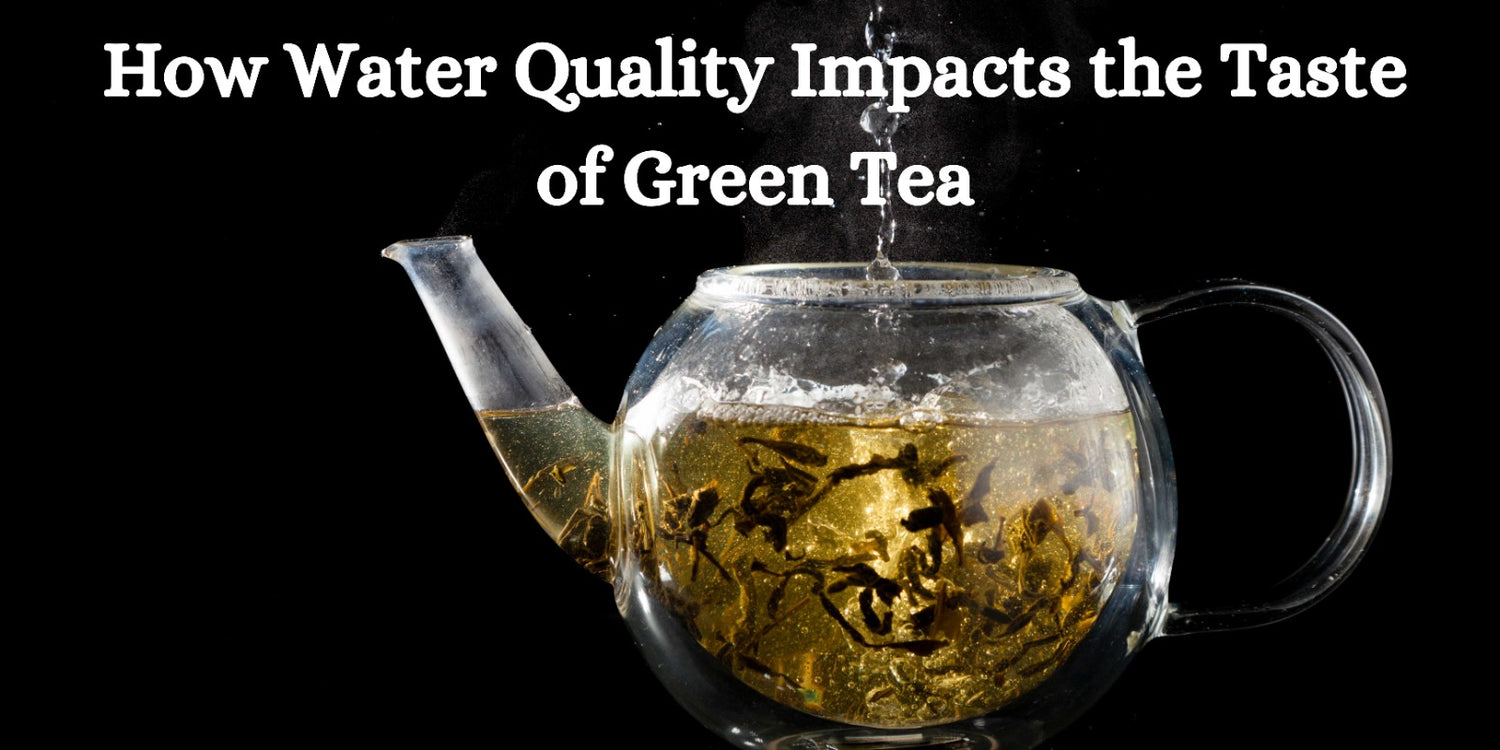Green tea is appreciated for its unique, gentle taste and numerous health benefits. However, many tea enthusiasts may not be aware that the quality of the water used to brew green tea can significantly impact its taste, aroma, and overall drinking experience. In this guide, we will explore how water quality can influence the quality of green tea and provide tips on how to brew the perfect cup every time.
Why Water Quality Matters in Green Tea
Water makes up the majority of what you're drinking when you enjoy a cup of green tea, so it's essential to consider its quality. The minerals, pH levels, and taste of the water can all affect how the flavors of the green tea are extracted during the brewing process. Using the right water can enhance the natural flavors of the tea, while poor-quality water can result in a flat or bitter-tasting brew.
Ideal Water for Brewing Green Tea
- Pure and Fresh: Opt for clean, fresh water free from impurities. Avoid using water that has been sitting in your kettle for an extended period, as it can develop a stale taste that may interfere with the nuances of the green tea.
- Mineral Content: The mineral content of the water can influence the taste of the green tea. Soft water with low mineral content is generally preferred for brewing green tea, as it allows the delicate flavors of the tea to shine through without any interference from strong mineral flavors.
- pH Levels: The ideal pH level for brewing green tea is slightly acidic, around 6 to 7. Water that is too alkaline or too acidic can alter the taste of the tea, so aim for a neutral pH to ensure a balanced and enjoyable brew.
- Filtered or Spring Water: If your tap water has a strong taste or odor, consider using filtered or spring water to brew your green tea. Filtered water can help remove impurities and chlorine that may affect the overall taste of the tea, while spring water can provide a clean, natural base for brewing.
Tips for Brewing Green Tea with the Right Water
- Temperature Control: Green tea is delicate and can easily become bitter if brewed at a high temperature. To prevent this, warm the water to approximately 160-180°F (70-80°C) before brewing green tea. Boiling water can burn the tea leaves, resulting in a bitter and sharp taste.
- Steeping Time: The steeping time for green tea is an important matter. If tea is left to steep for too long, it may become bitter. To avoid this, stick to the suggested steeping time on the tea package or start with a shorter time and adjust according to your taste.
- Experiment: Different green teas may respond differently to water quality, so don't be afraid to experiment with various water sources to find what works best for your favorite tea.
Conclusion
In short, the flavor and quality of your green tea are largely influenced by the water you choose to use. By using clean, mineral-balanced water with a neutral pH, you can enhance the delicate flavors of the green tea and ensure a more enjoyable tea-drinking experience. Paying attention to water quality, temperature, and steeping time will help you brew the perfect cup of green tea every time, letting you enjoy the delicate flavors and health benefits that this cherished drink provides.
Elevate your green tea experience by starting with the right water, and you'll be on your way to unlocking the full potential of this ancient and revered beverage.




